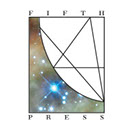Review by Paul Beekman Taylor
If there is a better reader of Gurdjieff’s First Series of All and Everything—An Objectively Impartial Criticism of the Life of Man—I do not know whom it might be. Buzzell probes Gurdjieff’s text surgically, not in search of a malignancy but to plumb for the treasure of knowledge encoded in vital parts of the human being. Buzzell’s book reflects the human body with its essential physical, emotional and rational centers. He is particularly concerned with the human brain—perhaps the “human mind” might be used as a complementary term, but Buzzell is careful not to probe many of the pathways of the complex labyrinth that is known as the mind, a term whose etymology includes, appropriately, the sense “image.” The mind is the control panel that has the means of harmonizing the interactions between the all three centers, and conscience, whose source is endlessness, is the pinnacle of Gurdjieff’s conception of God. Some readers might consider that this book might well be entitled A New Conception of God’s Creation. The creator is implied in this vast detailed exposition of the anatomy and physiology of human kind and his universe both close and far. One the one hand, Buzzell provides his reader with Gurdjieff’s map of the universe and a periodic table of those elements, material and moral, that constitute a human being. On the other hand, his work is an exegesis of a text that exists as a psychological and spiritual guide to knowing and understanding what man and his purpose on Earth are.
On one level of meaning, Buzzell’s’ conclusion is that there exist in each of us possibilities of harmonization of our anatomical centers and their energies. He is particularly convincing in his reading of Gurdjieff’s explanation of the positive and negative uses of sexual energy for thinking, feeling and moving centers. He points out the importance of one’s will, attention, self-observation and self-remembering.
Buzzell makes it quite clear that Gurdjieff’s care and clarity of effort in his exposition are dedicated to the betterment of humanity. We are all richer for Buzzell’s aligning Gurdjieff’s “Objective Science” with the complex entirety of contemporary technical, physiological and psychological research and findings. In a sense, Buzzell is decoding a cryptic message that is quite purposely out of the reach of ordinary or stereotypical analytic possibilities.
I have very few reservations about Buzzell’s style. As a philologist, I do, however, find references from Wikipedia, the Encyclopedia Britannica and standard desk dictionaries not adequate for the depth of his probe. I cannot find in any of my scholarly sources the equivalence of French raison to Greek logos. Gurdjieff’s collaborator, Orage, relied continually on the Oxford English Dictionary, and much of Gurdjieff’s understanding of particular English terms may well have been what he heard from Orage. For one example, if Orage discussed with him the etymology of the word, “body,” that has a historical likening to a vat, cask, or tub. In England, the word “buffer” was used, in Orage’s day, for what Americans call “bumper.” One wonders how much of Gurdjieff’s diction in All and Everything was colored by Orage’s English.
Though Buzzell’s study is not easy to read, and one is tempted to peruse it instead of devoting one’s maximum capacity to understand its scientific discourse, concentration of attention reaps rewards of understanding. For me as historian of ideas, I find Gurdjieff’s statement, reported by Ouspensky, that the Absolute “creates . . . a general plan of all the rest of the universe, which is then further developed mechanically (p. 287) a reassuring acknowledgement of Plato’s and Aristotle’s explanations of the operations of creator force. In fact, I find little in Buzzell’s careful and comprehensive analysis that does not support traditional wisdom and the most modern of scientific theory.
Switzerland, May 21, 2013
Purchase the Book
Paperback – $40
Click here to purchase with Credit Card or PayPal.
eBook – $18.75
Purchase the kindle e-book on amazon.

